MemoBlast is yet another dangerous scam sweeping social media platforms like Facebook and Instagram, preying on vulnerable individuals desperate for a memory cure. This so-called “advanced nootropic” blatantly claims it can reverse Alzheimer’s and dementia through a “13-second homemade recipe” dubbed the “elephant trick”. These bold assertions are completely fabricated and have no basis in science or medicine.
The MemoBlast marketing campaign uses deceptive tactics, including fake endorsements from celebrities like Meryl Streep and Elon Musk, as well as bogus experts who do not exist. They misleadingly reference prestigious institutions such as Harvard and Johns Hopkins University to lend an illusion of credibility, but there is zero proof linking these claims to real research or endorsements. This is a textbook example of manipulation to lure in unsuspecting customers.
The product’s official websites feature misleading language and false promises—claiming FDA approval that does not exist, displaying fake reviews with AI-generated photos, and showing broken links for privacy policies and terms of service. There is no secret recipe, no miracle cure, just overpriced pills that contain undisclosed ingredients. Consumers are tricked into watching long, fabricated video presentations that ultimately lead to a push for a product purchase with no scientific validity behind it.
Beware of “money-back guarantees” promised by MemoBlast. These often turn out to be empty promises, as refund requests frequently go ignored or are outright denied. Even buying from large online retailers doesn’t guarantee authenticity since scammers can list fake products without authorization.
If you or a loved one are struggling with memory issues or neurological diseases like Alzheimer’s, the best course of action is to seek advice from qualified healthcare professionals who rely on evidence-based treatment methods—not flashy online ads offering impossible cures. Protect yourself from MemoBlast and similar scams: don’t fall for the hype, and always thoroughly research any supplement before considering its use. Real memory support comes from trusted sources, not internet fraudsters.
💡 Heads-up: Similar Scams Are Everywhere. MemoBlast is not unique. It is one of many fake supplements, gadgets, and other schemes we expose in our Fact Checks section. All of them aim to grab your personal data or money. The people behind these scams run slick websites, spread bogus promo codes, and even pose as trusted brands or experts. Below are a few recent scams that follow the same playbook as MemoBlast: HHVB GLP-1 Slimming Drops, Pegasus – Digital Income System, Lmipki Nano Microneedle Patch, GLPro, Microsoft Has Temporarily Suspended Your Account.
Table of Contents
🚨 Is MemoBlast a Scam?
MemoBlast is being promoted as a groundbreaking nootropic that supposedly reverses Alzheimer’s disease and dementia with a mysterious “13-second homemade recipe” called the “elephant trick”. However, these claims are completely false and rooted in deceptive marketing tactics targeting vulnerable individuals seeking cures for serious cognitive conditions.
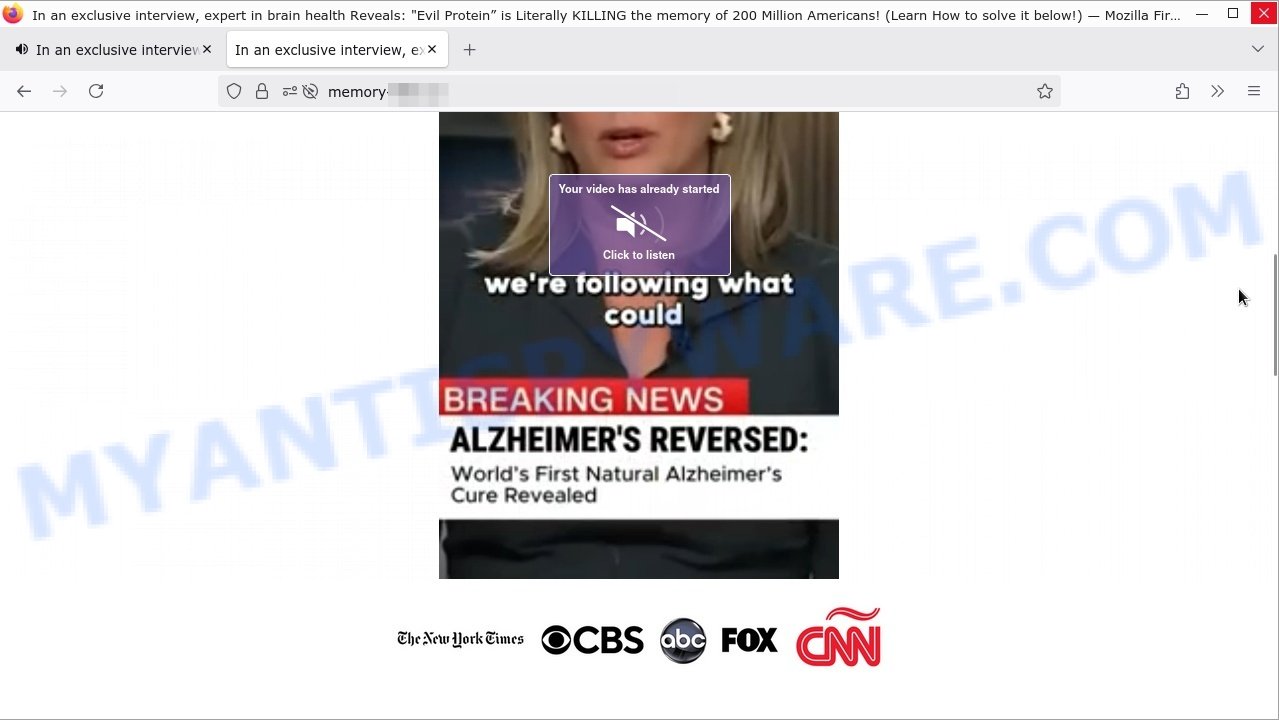
Key Red Flags:
- 🌐 Fake Endorsements and Deepfakes: MemoBlast ads feature AI-generated videos and deepfakes of celebrities like Meryl Streep, Elon Musk, and Sean Hannity, along with fabricated experts such as “Dr. Elizabeth Bennett” and non-existent neuroscientists allegedly from prestigious institutions. None of these endorsements are real or verified.
- ⭐ Fabricated Testimonials and Reviews: The product showcases heavily exaggerated, AI-generated testimonials and reviews that cannot be independently verified, designed to create a false impression of effectiveness and trustworthiness.
- 🔒 Misleading Website Claims: MemoBlast websites, such as memory-labs.us and getmemoblast.com, falsely claim FDA approval and cite fake scientific research. The purported “Harvard study” on memory damage does not exist, and reputable institutions have no affiliation with MemoBlast.
- ⚠️ Unsubstantiated Health Claims: The product promises to restore memory and mental clarity rapidly through a few natural ingredients, but there is no credible clinical evidence supporting these claims or the existence of any secret “elephant trick”.
- 📉 Scam Marketing Tactics: The scripted video presentations mislead viewers by promising a secret recipe but never reveal any meaningful information—only pushing the purchase of expensive supplements instead.
- 👤 Questionable Purchase Process and Refund Policies: Despite offering a 60-day money-back guarantee, customers often find it difficult or impossible to obtain refunds. High-pressure sales tactics, sudden discounts, and multi-bottle packages encourage impulsive, costly purchases.
- 🔗 Broken Links and Privacy Concerns: The MemoBlast websites have broken links to privacy policies and terms of service, indicating poor site maintenance and a lack of transparency expected from legitimate companies.
In summary, MemoBlast exhibits numerous warning signs typical of health product scams, including fake endorsements, bogus scientific claims, deceptive marketing, and unreliable customer service. It is strongly advised to avoid purchasing MemoBlast and to consult qualified healthcare professionals for evidence-based treatment options related to cognitive health and memory concerns.
🕵️♂️ How MemoBlast Operates
MemoBlast is a classic memory supplement scam. 🚨 It targets vulnerable individuals by pretending to be a revolutionary nootropic that can reverse Alzheimer’s and dementia using a “13-second homemade recipe” called the “elephant trick”. In reality, it’s a fraudulent product with no scientific basis or true effectiveness.
🔗 Step-by-Step Breakdown of the Scam:
🛒 Misleading Marketing and Fake Endorsements
The scammers use AI-generated deepfakes of celebrities like Meryl Streep, Elon Musk, and Sean Hannity, and invent fake doctors such as Dr. Elizabeth Bennett and Dr. Stephanie Watson to deceptively endorse MemoBlast. They also falsely claim support from reputable institutions like Harvard, Johns Hopkins, and the University of Tokyo. None of these endorsements are real or verified.
🕸️ Creating Deceptive Websites
Websites like memory-labs.us and getmemoblast.com are professionally made to look legitimate but contain false claims, broken policy links, and fake “scientific references”. They falsely assert FDA approval and medical legitimacy without any real backing.
📢 Using Emotionally Charged Ads
Ads on Facebook, Instagram, and other platforms exploit fears about memory loss with statements like “Harvard Exposes ‘Parasitic’ Toxins Devouring Memories”. These fearmongering tactics are designed to rush people into buying MemoBlast without a second thought.
💼 Selling a Worthless Product
After a drawn-out, faux “scientific” video presentation promising a secret recipe— which never materializes—customers are pushed to buy bottles of expensive pills. The actual pill contents and effectiveness are unproven and likely useless.
💸 Fake Discounts and Urgency
The scam offers steep “discounts” that slash the inflated original price to entice quick purchases, but the high cost remains unjustified by the product’s actual value.
🌟 Fabricated Reviews and Testimonials
Fake customer reviews with AI-generated profile pictures give the illusion of overwhelming satisfaction and effectiveness, misleading buyers further.
⚖️ False Legal and Safety Claims
MemoBlast’s websites falsely claim that the product is safe, FDA-approved, and endorsed by experts, despite lacking any regulatory approval or scientific validation.
🛍️ Difficult Refund and Return Policies
Though a “60-day money-back guarantee” is advertised, customers often find it nearly impossible to get a refund. The return process is deliberately complicated, requiring prior authorization, shipping the products at the buyer’s cost, and approval by the scam operators.
🚫 Lack of Real Customer Support
Post-purchase inquiries are met with non-responsive or evasive customer service contacts, making it difficult for customers to resolve issues or get refunds.
😱 What to Do If Scammed
If you find yourself ensnared by the MemoBlast Scam, immediate action is crucial. Here’s what you should consider doing:
🛑 Stop Further Transactions
The first step is to halt any additional transactions that might be in process. Contact your bank or credit card provider and inform them that you’ve fallen victim to a scam. They can help by blocking the card or reversing any unauthorized transactions.
📞 Report the Fraud
File a report with your local police and provide all the available evidence, such as screenshots, emails, and website URLs. Additionally, report the scam to online portals like the Better Business Bureau (BBB) at www.bbb.org or the Federal Trade Commission (FTC) at reportfraud.ftc.gov. If you’re in another country, reach out to your national consumer protection agency.
💻 Take Screenshots
Before the scam website gets taken down or changes, make sure to capture screenshots of your transactions and communications. These can serve as evidence if you decide to pursue legal action.
⚖️ Consult Legal Advice
Speak to a legal advisor about your situation. While pursuing legal action may be time-consuming and costly, it could be a possible avenue for recovering your lost money.
📢 Share Your Experience
Use social media platforms to share your experience and warn others about the scam. Your story could prevent someone else from falling victim to the same or similar scams.
Summary Table
| Factor | Observations | Impact on Legitimacy |
|---|---|---|
| Product Description | MemoBlast is marketed as an advanced supplement that supposedly reverses Alzheimer’s and dementia using a “13-second homemade recipe” called the “elephant trick”. These claims are false and not supported by any real science or medical institutions. The product promotes natural ingredients but makes unrealistic promises with no evidence. | Negative (False health claims and unproven effectiveness) |
| Reviews | The official website has no real reviews on trusted platforms like Trustpilot. Reviews on the site appear fake and use AI-generated photos, showing lack of honest feedback from customers. | Negative (Fake testimonials and no independent reviews) |
| Marketing Channels | Ads use deepfake videos of famous people and fake doctors to promote MemoBlast. They make false claims about endorsements from well-known universities and medical experts, none of which are involved with the product. | Negative (Deceptive advertising and fake endorsements) |
| Price | The product is offered in expensive multi-bottle deals with discounts, encouraging customers to buy large quantities without real proof of benefit. | Negative (High price with pressure to buy multiple bottles) |
| Real Functionality | MemoBlast claims to improve memory and brain function based on natural ingredients, but there is no scientific proof supporting the specific effects or the “elephant trick” recipe. | Negative (No scientific evidence supporting claims) |
| Company Contacts | The website provides limited contact information. Domain registration is protected by privacy services, making it hard to verify who is behind the product. | Negative (Poor transparency of company details) |
| Product Source | MemoBlast falsely claims FDA approval and misuses names of real medical experts and institutions. It uses professional-sounding language but lacks any real certification or approval. | Negative (False claims about approval and endorsements) |
| Safety Claims | The product states it uses natural ingredients and is safe, but there is no clear information on possible side effects or risks. Customers with health conditions are advised to consult a doctor. | Negative (Limited safety details and misleading safety statements) |
| Website Transparency | The site uses typical scam tactics like urgent sales messages and broken links to key policies. It hides real company information and uses AI-generated images to mislead visitors. | Negative (Unclear website information and deceptive tactics) |
| Refund Policy | MemoBlast offers a 60-day money-back guarantee, but such promises are common scams use to seem trustworthy. Real users may face difficulties getting refunds, especially once payment is made. | Negative (Unreliable refund policy and potential refund difficulties) |
Conclusion
The MemoBlast memory supplement is a scam designed to mislead vulnerable consumers with false claims, fake endorsements, and deceptive marketing tactics. Promoted as a miraculous cure for Alzheimer’s and dementia based on a fabricated “13-second homemade recipe” and the so-called “elephant trick”, MemoBlast preys on fear and hope without any scientific backing or legitimate research.
The scam uses AI-generated deepfake videos featuring celebrities like Meryl Streep and Elon Musk, as well as fake experts such as “Dr. Elizabeth Bennett” and “Dr. Stephanie Watson”, to create an illusion of credibility. None of these individuals or reputable institutions like Harvard or Johns Hopkins endorse or are affiliated with MemoBlast. The product’s official websites falsely claim FDA approval and display counterfeit badges to appear trustworthy.
MemoBlast’s marketing follows a typical fraud pattern: a lengthy fake video presentation promises a secret memory-boosting recipe but ultimately offers only overpriced pills with unproven ingredients. Customers are pushed to buy multiple bottles with promises of natural, safe ingredients, yet there is no reliable evidence these capsules improve cognition or memory. Refund guarantees are meaningless as scammers often disappear after payment.
Bottom Line: Avoid MemoBlast at all costs. It is not a legitimate medical treatment and will not cure or reverse Alzheimer’s, dementia, or any other brain condition. Always conduct thorough research on any health product, especially those making exaggerated claims supported only by fake endorsements and manipulated content. When an offer sounds too good to be true and uses deceptive tactics, it is almost certainly a scam. Stay vigilant and protect yourself from fraudulent supplements like MemoBlast.
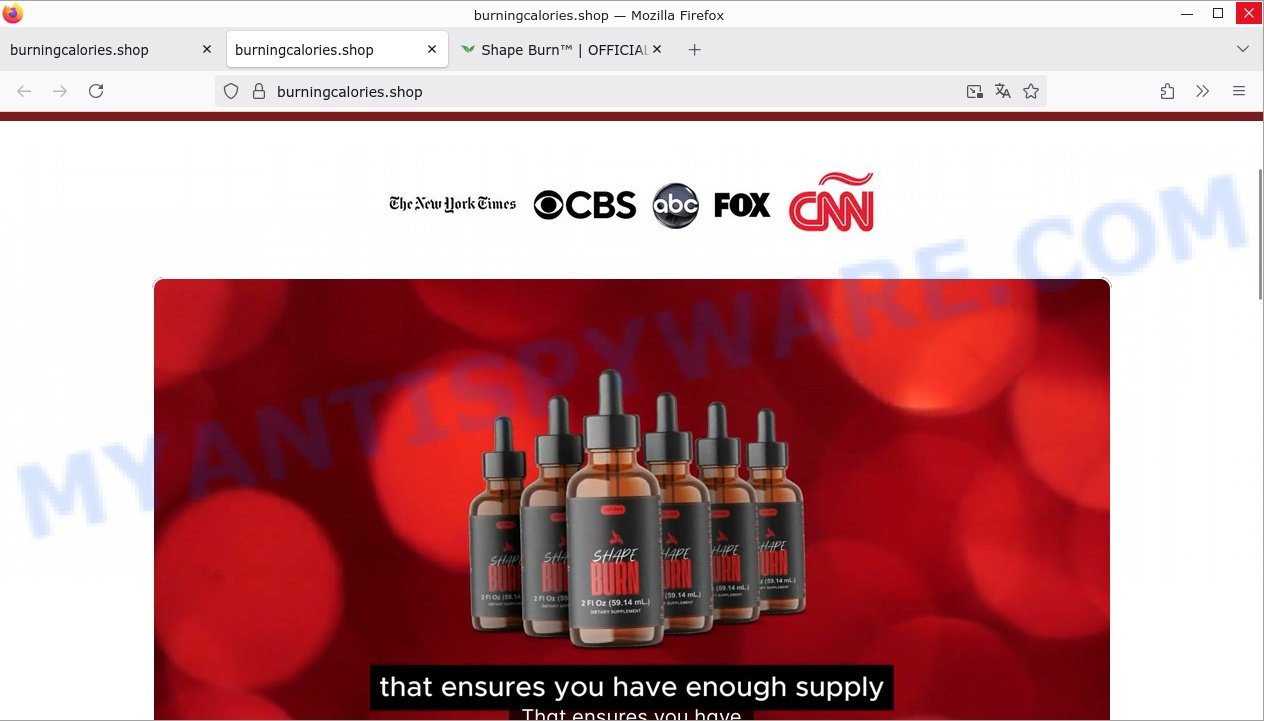

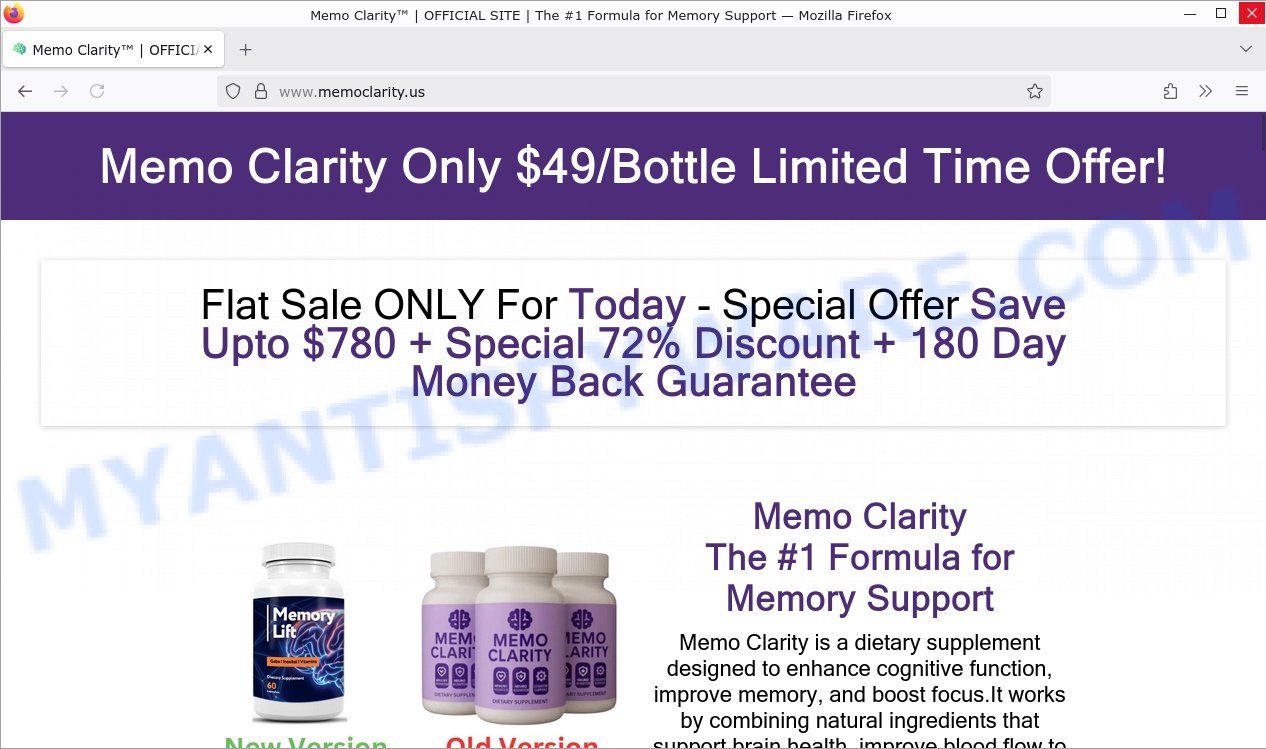
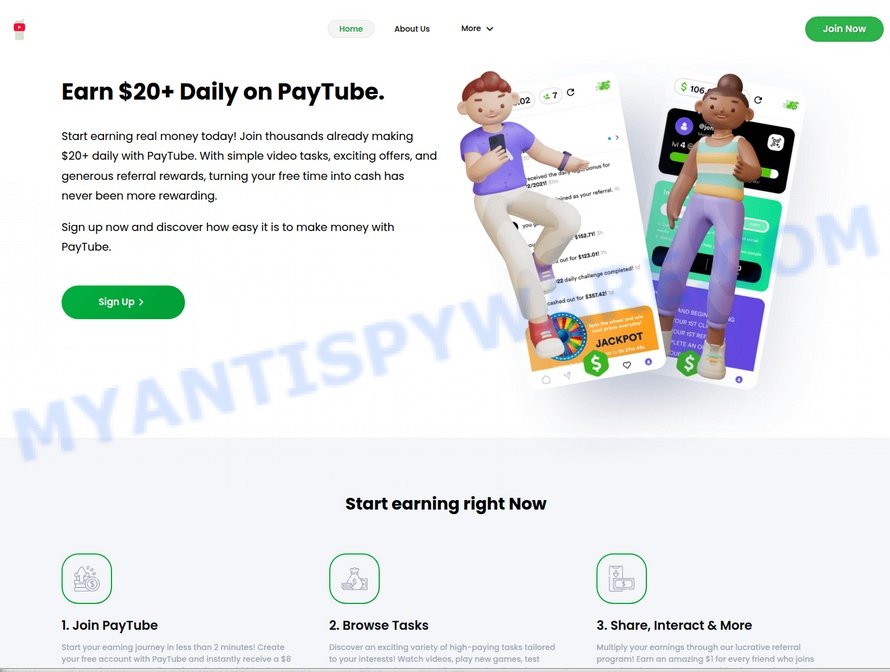


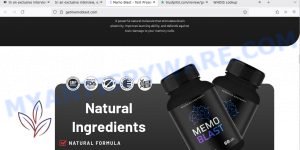
















I wish I had known about you folks beforehand,, I got taken and wis
h to pursue a refund. Would you happen to have any address, email or contact information on Memo Blast?
Wiukd you have an address, email, etc so I can file for a refund?
No, we don’t have that information. Try contacting them through the payment processor by filing a complaint with the BBB.